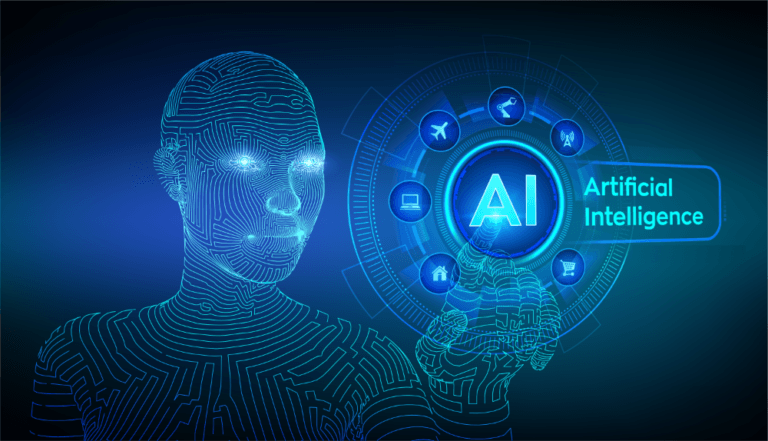

The rapid advancement of Artificial Intelligence (AI) is reshaping our world in unprecedented ways. As we stand on the cusp of a new technological era, it’s crucial to understand the AI trends that will define the coming decade. (Let’s explore this topic in more detail with 2048 Unblocked below)
Generative AI has emerged as one of the most transformative technologies of our time. This branch of AI focuses on creating new content, whether it’s text, images, music, or even code. Large language models like GPT-3 and its successors are revolutionizing how we interact with machines, enabling more natural and context-aware conversations.
In the coming years, we can expect generative AI to become increasingly sophisticated and integrated into various aspects of our lives. From personalized content creation to automated software development, the applications are vast and varied. Businesses are already leveraging this technology to enhance customer service, streamline content production, and boost creativity in fields like advertising and product design.
However, the rise of generative AI also brings challenges. Issues of copyright, authenticity, and the potential for deepfakes raise important ethical questions that society will need to address. As this technology evolves, we’ll need to develop robust frameworks for responsible use and verification of AI-generated content.
Read more: AI and Cybersecurity How Smart Systems Fight Hackers
The healthcare industry is poised for a major transformation thanks to AI. From diagnosis to treatment planning, AI is enhancing the capabilities of healthcare professionals and improving patient outcomes. Machine learning algorithms are becoming increasingly adept at analyzing medical images, often outperforming human experts in detecting certain conditions.
In the next decade, we can expect to see AI playing a more prominent role in personalized medicine. By analyzing vast amounts of patient data, including genetic information, AI systems can help doctors tailor treatments to individual patients, maximizing effectiveness while minimizing side effects.
Predictive analytics powered by AI will also become more prevalent, allowing healthcare providers to anticipate and prevent health issues before they become serious. This proactive approach to healthcare has the potential to save countless lives and reduce the burden on healthcare systems worldwide.
One of the most exciting applications of AI in healthcare is in drug discovery. Traditional drug development is a time-consuming and expensive process, often taking over a decade and billions of dollars to bring a new drug to market. AI is dramatically accelerating this process by predicting how different chemical compounds will interact with biological targets.
Companies like DeepMind have already demonstrated the power of AI in this field, using their AlphaFold system to predict protein structures with unprecedented accuracy. This breakthrough has significant implications for understanding diseases and developing new treatments. As AI continues to advance, we can expect to see more rapid development of novel therapies and a more efficient drug discovery process overall.
The Internet of Things (IoT) has already connected billions of devices worldwide, generating massive amounts of data. The integration of AI with IoT, sometimes referred to as AIoT, is set to create even smarter, more responsive systems that can learn and adapt in real-time.
In smart cities, AI-powered IoT systems will optimize traffic flow, reduce energy consumption, and enhance public safety. In manufacturing, predictive maintenance powered by AI and IoT sensors will minimize downtime and increase efficiency. Smart homes will become more intuitive, learning from inhabitants’ behaviors to create more comfortable and energy-efficient living spaces.
This convergence will also play a crucial role in addressing global challenges such as climate change. AI-enhanced IoT systems can help monitor and manage natural resources more effectively, from optimizing water usage in agriculture to predicting and mitigating the impacts of extreme weather events.
As AI and IoT converge, we’re seeing a shift towards edge computing, where data processing occurs closer to the source rather than in centralized cloud servers. This trend, known as Edge AI, allows for faster response times, improved privacy, and reduced bandwidth usage.
In the coming years, we can expect to see more AI capabilities embedded directly into IoT devices. This will enable real-time decision-making and responsiveness, crucial for applications like autonomous vehicles, industrial automation, and augmented reality experiences. Edge AI will also play a vital role in scenarios where connectivity is limited or unreliable, ensuring that AI-powered systems can continue to function effectively.
As AI capabilities expand, the nature of work is set to undergo a significant transformation. While there are concerns about job displacement, the reality is likely to be more nuanced, with AI becoming a powerful collaborator rather than a replacement for human workers.
In the next decade, we’ll see the rise of human-AI collaboration across various industries. AI will take on more routine and repetitive tasks, freeing up human workers to focus on higher-level strategic thinking, creativity, and interpersonal skills. This shift will require a reimagining of job roles and a focus on developing skills that complement AI capabilities.
The education sector will need to adapt to this changing landscape, emphasizing skills like critical thinking, emotional intelligence, and adaptability. Lifelong learning will become increasingly important as workers need to continuously update their skills to remain relevant in an AI-driven economy.
Read more: The Dark Side of AI Real Risks You Should Know
Contrary to the notion that AI might stifle human creativity, we’re seeing AI become a powerful tool for artists and creators. AI-powered tools are enhancing creative processes in fields like music composition, visual arts, and even literature.
In the coming years, we can expect to see more sophisticated AI systems that can collaborate with human artists, offering new avenues for expression and pushing the boundaries of what’s possible in various art forms. This collaboration between human creativity and AI capabilities has the potential to produce entirely new forms of art and entertainment.
As we look towards the next decade, it’s clear that AI will continue to be a driving force in technological innovation and societal change. From healthcare to creative arts, from smart cities to the future of work, AI is set to transform nearly every aspect of our lives. While challenges and ethical considerations remain, the potential benefits of AI are immense. By embracing these technologies responsibly and thoughtfully, we can harness the power of AI to create a more efficient, sustainable, and innovative world.
The key to navigating this AI-driven future will be adaptability and a commitment to lifelong learning. As AI systems become more sophisticated, our ability to work alongside them, understand their capabilities and limitations, and guide their development in ethical and beneficial directions will be crucial. The next decade of AI promises to be exciting, challenging, and transformative, offering unprecedented opportunities for those ready to embrace the change.